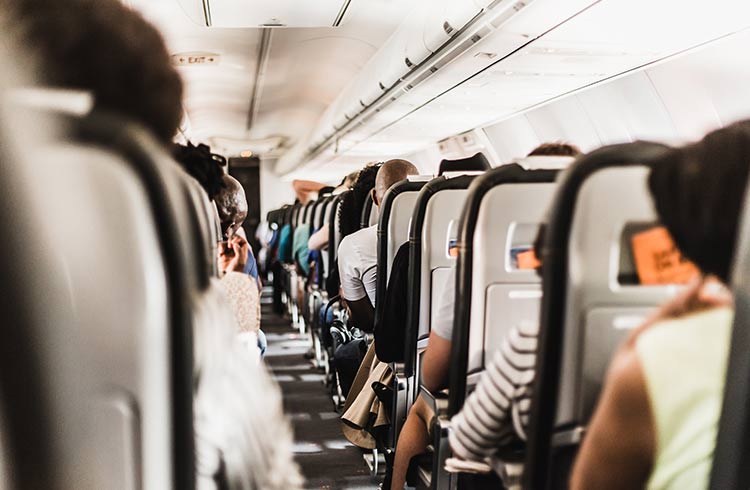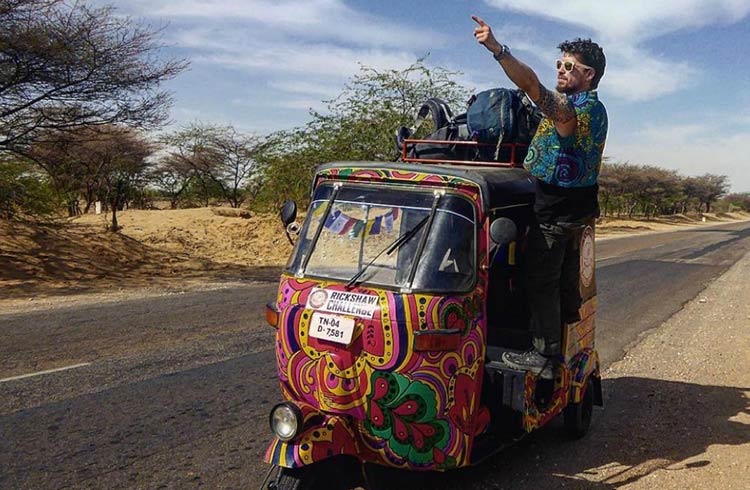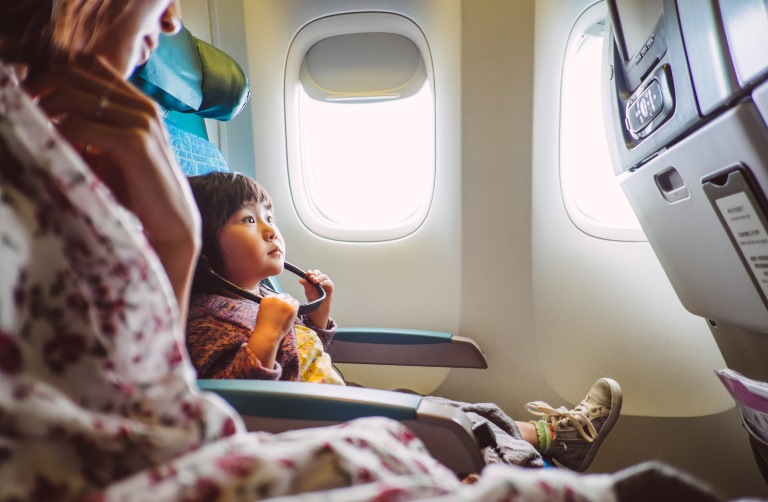How to Stay Healthy and Happy on a Long-haul Flight
Long-haul flights can drain the life out of you, and if you're not prepared, make you feel ill. Here are our tips to help you arrive feeling fresh.
Shares
 Photo © Photo by Gerrie van der Walt on Unsplash
Photo © Photo by Gerrie van der Walt on Unsplash
As aviation technology advances, we are seeing more non-stop flights being offered, promising to shorten flight times. However, there is still a long way to go. For now, travelers need to catch multiple flights to get to and from destinations that are thousands of miles, and sometimes, days away.
Long-haul flights take a toll on us mentally and physically, and the discomfort can be multiplied if you feel unwell. Here are a few things to know about how flying affects our bodies, and how to stay healthy on your long-haul flight.
How does flying affect our bodies?
We lose our sense of taste
At high altitudes, our tastebuds can lose their ability to do their job. Add to that cabin pressure, dry air, dull lighting and unexciting plane food, it's no wonder we lose our ability to taste and enjoy food. Research has found that our ability to taste salty and sweet foods while flying is reduced by as much as 30%, so airlines are now spending more resources on the research and development of in-flight food and wine.
Our blood oxygen saturation level drops
The World Health Organization says that plane cabin pressure is the equivalent of 6,000–8,000ft (1,800–2,400m) above sea level, which means our blood oxygen levels are reduced (hypoxia) leading to sleepiness, a lack of mental alertness and sometimes, headaches. Sitting down for long periods on a flight compounds this issue due to lack of circulation.
Our circadian rhythm gets messed with
Jet lag is a mix-up between our body clock (which regulates everything from our mental self to when we need to use the bathroom) and the real-time destination we are traveling to. Our circadian rhythm can only be reset for up to 90 minutes every 24 hours, and the lack of light exposure on the plane adds to the effects of jet lag. Traveling east is harder than traveling west, as it fights against the normal body clock process. You need one day for each hour of time zone difference between where you are traveling from and to.
Blood pools in our lower extremities
Due to the lack of circulation in our bodies, blood will pool in our legs and feet. This leads to blood clots and deep vein thrombosis. that's why it's important to move around as much as possible when flying.
We get bloated and farty
At altitude, gases in our body expand, leaving our stomachs and abdomens feeling full and bloated. Gases at altitude also affect our ability to hear, creating the popping effect and a pressurized feeling in our ears on take-off and landing. On the descent, the eustachian tube doesn't react fast enough which is why our ears hurt from the pressure change.
We end up dehydrated
Because the cabin air is so dry, our skin begins to lose moisture and in turn, the rest of our body. Dehydration also exposes you to potential bacteria and viruses as your mucus membranes, which provide a natural barrier, dry out.
Germs
Flying on a plane can sometimes feel like you are stuck in a cigar-shaped petri dish of grossness. Fellow passengers may be coughing and spluttering, and then there are the bathrooms everyone has to use. A 2014 study by Auburn University in Alabama discovered that bacteria such as staph and e-coli can survive for up to a week in a plane on cabin surfaces, armrests, tray tables and other spots.
Tips to stay healthy
Get comfortable
If you're stuck in the plane for 14 hours you may as well settle in and get comfy. Even consider what you plan to wear (loose-fitting clothing is ideal) and where you want to sit before you get on the plane so you can relax without feeling restricted. Washing your face and brushing your teeth before sleeping can help you feel more relaxed. Planes get cold and not every airline will offer a blanket so pack a sarong, shawl or light blanket plus socks and slippers. Don't forget the eyemask and neck pillow.
Tip: wear your seat belt over your blanket so the flight crew doesn't disturb you if the seat belt sign comes on after you have fallen asleep.
Wear compression socks
You can get them all the way up to your knee or all the way up to your hip. They keep the blood from pooling in your lower leg and your feet, so it prevents some of that swelling and that achiness.
Block the noise
Sleeping on planes isn't the easiest so grab some earplugs or noise-canceling headphones to drown out the droning noise of the plane and that guy who is snoring in the nearby row.
Stay hydrated
While drinking plenty of water hydrates you, your full bladder also nudges you to get up and move to visit the bathroom. Drink alcohol in moderation and limit your caffeine intake if you are planning to sleep. You may also want to consider using a saline nasal spray and moisturizer to stop your nose and skin from drying out.
Tip: bring an empty reusable bottle that you can refill with water before or during the flight. This saves using plastic cups and means you always have water on hand.
Eat light
Try to avoid fatty and heavy foods while flying. Steer clear of consuming fizzy drinks and gas-producing foods e.g beans, cabbage, lentils, chickpeas etc. which can leave you bloated. Your digestive system slows down while flying so also consider your food choices when it comes to the meal offerings. Try to eat a light and balanced meal, avoiding starchy and sugary foods. Pack your own snacks.
Good hygiene
Make sure you pack a hand sanitizer and use it before meals and after using the bathroom.
Stretch and walk around
Our blood oxygen levels are lower and our circulation slows down when we spend hours sitting on a flight which can lead to deep vein thrombosis. So make sure you get up every hour to stretch and go for a walk around the plane.
Time zone adjustment
To combat jet lag, there are things you can do prior to flying to prepare yourself such as getting a good night's sleep and doing some light exercise e.g going for a walk outside, yoga or a light session at the gym. While on the flight, switch your watch to the time of your destination and try to sleep according to that timezone. Upon arrival, if it's daylight make sure you get outside for some sun and fresh air, even go for a walk or just hang out in the local park.
Sleep medications
Some travelers like to use a sleep medication e.g melatonin or a prescription drug to help them sleep on the plane. Have a chat with your doctor and try the medication out before you fly. There is nothing worse than being on a flight, having a reaction to what you have taken and not being able to do anything about it. For some, sleep drugs can act like a stimulant rather than a sedative, leaving you awake the entire flight.
Unblock your ears
On the descent, you will notice your ear pressure change and for some people, it can be painful. Some ideas to get relief from the pressure include holding your nose and blowing out through your ears, yawning or sucking/chewing some candy to help release the pressure in your eustachian tubes.



3 Comments
Smart travel advice from 2 smart guys.
Great advice from one of the top guys in our sport!
muito obrigado pelas dicas,valeu e uma coisa que faco tambem e exercicio de respiração vale tbm para dar uma relaxada